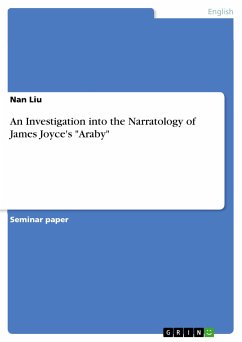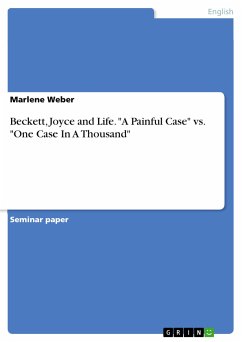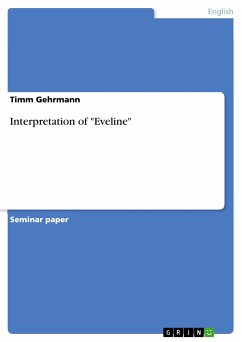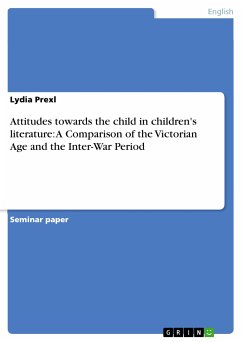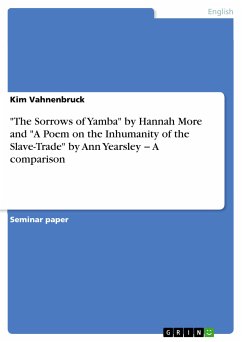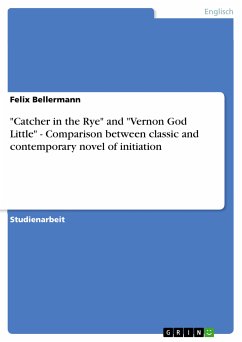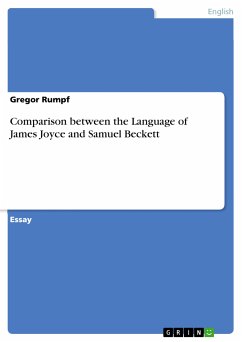
Comparison between the Language of James Joyce and Samuel Beckett (eBook, PDF)

PAYBACK Punkte
0 °P sammeln!
Essay from the year 2006 in the subject English Language and Literature Studies - Literature, grade: 85 %, University of Birmingham (Faculty of Law, Humanities, Development and Sociology ), course: Joyce and Beckett, language: English, abstract: The first part of this essay will concern itself with the literary style of three of James Joyce’s books – the collection of short stories called Dubliners, the novel A Portrait of the Artist as a Young Man and his masterpiece Ulysses. The following section will show the stages of development Joyce’s language underwent from the fairly realistic D...
Essay from the year 2006 in the subject English Language and Literature Studies - Literature, grade: 85 %, University of Birmingham (Faculty of Law, Humanities, Development and Sociology ), course: Joyce and Beckett, language: English, abstract: The first part of this essay will concern itself with the literary style of three of James Joyce’s books – the collection of short stories called Dubliners, the novel A Portrait of the Artist as a Young Man and his masterpiece Ulysses. The following section will show the stages of development Joyce’s language underwent from the fairly realistic Dubliners to the “stream-of-consciousness fantasy” of Ulysses. Dubliners was published in 1914, but Joyce had worked on the short stories since 1904. This book is generally considered to be his most accessible piece of work, certainly due to the rather conventional naturalistic style in which it is written. The content of each short story in Dubliners is in essence a variation of a basic message “[…] Dublin […] the centre of paralysis […]”. Joyce referred to Dubliners as being written in a language of “scrupulous meanness”, meaning that the sparse and flat style was in fact carefully crafted to capture the sense of ordinariness and apathy in the lives of the various central characters. In this sense, the depleted language mirrors the condition of the people inhabiting Dublin without commenting directly on it. Patterns of repetition, like in the story “Eveline” stress the monotony and limitations of the characters’ lives and their inability to break out of it.




